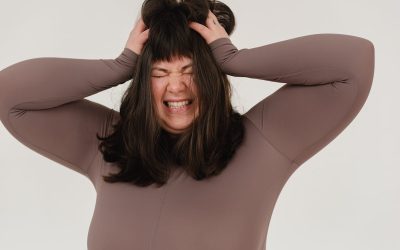You probably know that chronic stress is bad for your health. It can increase your risk of developing certain illnesses such as heart diseases, gastrointestinal disorders and depression. It can even trigger a number of hair loss conditions.
Yes, you read that right! Your hair may fall off if you are constantly under a lot of stress. So far, there are 3 hair loss conditions that are believed to be associated with stress.
Telogen Effluvium
This condition is characterised by diffused hair loss. Scientists point to stress as the primary cause of telogen effluvium. To be more precise, it is brought about by exposure to excessive physical or emotional stress such as when you undergo surgery, get injured or give birth.
How does stress cause telogen effluvium? It disrupts the normal hair cycle. For you to understand better, let’s quickly discuss this process.
There are four stages in the hair cycle – anagen, catagen, telogen and exogen. Anagen is the growth phase which can last up to six years. After this, the strands briefly go through the catagen stage wherein the follicles shrink. Then, the strands enter the telogen or the resting stage. At this point, as the name suggests, the strands are resting – they are not growing anymore. The last part is the exogen phase which is when the hair falls off.
Due to chronic stress, strands in the anagen stage prematurely enter the telogen phase and then eventually fall off. It is still not known why this happens. However, some studies suggest that stress hormones may be the culprits.
In telogen effluvium, the shedding doesn’t immediately happen after you experience the stressful. Remember, the strands enter the resting stage first before they fall off. The hair loss may take place 2 to 4 months after your trigger.
Trichotillomania
This is categorised as an impulse-control disorder which results in hair loss. This is because, in trichotillomania, you’d have an irresistible urge to pull your hair.
This behaviour may be your way of coping with stress, loneliness and boredom, to name a few. Moreover, this act may be done intentionally or unintentionally.
The pulling leads to broken hair strands and bald patches. The effects aren’t noticeable at the start, especially since the act isn’t directed on a specific area of the scalp. So, it can take a while before bald spots develop.
Aside from pulling your hair, you may also develop the habit of playing with strands or rubbing them on your face. Your actions may even escalate from pulling to chewing or eating the strands.
Alopecia Areata
In alopecia areata, the hair on the scalp falls off leading to the formation of smooth, circular hairless patches. Over time, the small bald spots join together, thereby, becoming bigger and noticeable.
Classified as an autoimmune condition, alopecia areata happens when the body’s immune system mistakenly attacks the hair follicles. As a result, the follicles shrink and produce finer, brittle strands which break or fall off easily. Over time, the follicles stop producing hair.
Scientists still do not fully understand why the immune system malfunctions. However, some experts believe that stress somehow plays a role in this situation. In fact, there are those who think that it is the trigger since there are anecdotal reports wherein sufferers claimed to have been under stress before their hair started falling off.
So, it is best to minimise stress in your life if you want to avoid the above-mentioned hair loss conditions and to keep your precious locks.
Meanwhile, if you are excessively losing hair, don’t self-diagnose and assume that it’s stress-related. Instead, see a trusted dermatologist or trichologist right way. Only a hair and scalp specialist can accurately diagnose your condition and recommend the best treatment.
Are you worried that you might be experiencing stress-related hair loss? Our dermatologists and trichologists are experienced in treating all types of hair loss conditions. Call us now on 016793618 to schedule an appointment!



